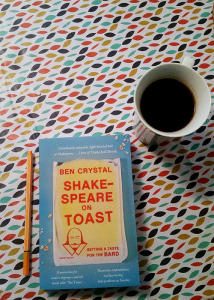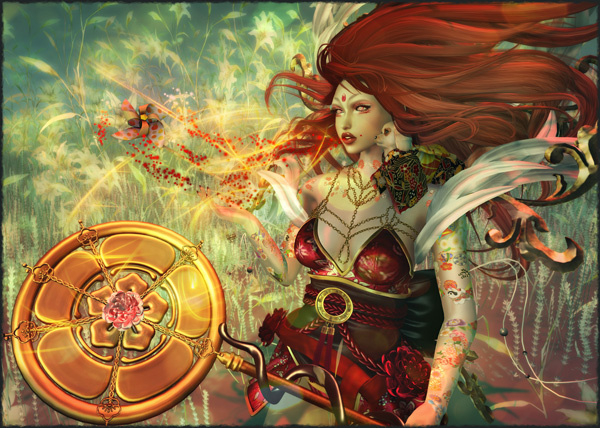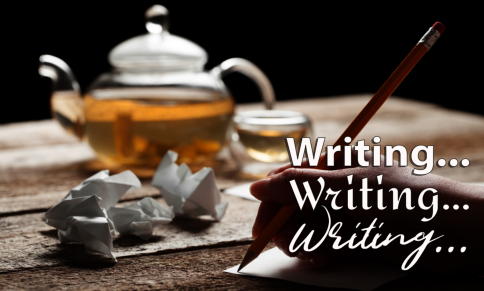
Genre: Nonfiction
Medium: Paperback
Synopsis: Before writing this guide to Shakespeare, Crystal wondered why there were so many difficult texts on how to read/act Shakespeare, and so many texts that discuss Shakespeare on a shallow level. In response to that, Crystal wrote Shakespeare on Toast, a fun, light-hearted guide that provides context, depth, and humor to the bard’s works.
Review: Reading this book was like having a conversation with Ben Crystal over coffee, and, well, toast. I personally was a Shakespeare minor in college, so I’m no stranger myself to his works, or to analyses of his work, for that matter. Overall, I was very pleased with my Shakespeare education, though I must admit that I wish that we had read this book for our intro class. The reason why I say that is because Crystal takes us on a journey through Shakespeare’s time, and then through his works as well.
He discusses Shakespeare’s time, history, monarchs, and profession. He explains how plays were generally received in the public, and where Shakespeare may have gotten his ideas from. He doesn’t dwell on whether Shakespeare was “actually” Shakespeare, because for him, this doesn’t matter. What matters for Crystal is how Shakespeare is performed and the catharsis his audience feels after a performance.
“It doesn’t matter who Shakespeare might have been, because who he was isn’t as important to us as when he was and what he did” (15).
For those who have already studied Shakespeare, the first half of the book might be a bit of a refresher, though a very humorous one. Shakespeare, to Crystal, is the equivalent of today’s soap opera writers, and this makes for quite a few funny jabs at the expense of our bard. He introduces, in these chapters/acts, the history of the folios, quartos, and how to read Ye Olde English. Which, by the way, did you know that only 5% of words that Shakespeare uses aren’t in our current lexicon? It’s not the language that’s “outdated”, per se, but the definitions–and knowing this helps us read Shakespeare.
The next half is where it gets very interesting, especially from a scholar’s point of view. Now, I’m by no means a Highe Scholar of Ye Bard Shakespeare (read: I took a couple classes on him in college, and I’ve watched his plays at the Oregon Shakespeare Festival). But, I think that after all of my classes that I know a little more than the average person. So, that being said, it’s nice to get into the semantics of Shakespeare’s works.
What do I mean by semantics? I mean the stuff that I absolutely dreaded learning about some years ago: iambic pentameter. Crystal explains how Shakespeare uses meter so well that all I want to do now is reread all of his plays. He uses both words and graphs to make his points clear: Shakespeare is the Miles Davis of wordplay. Crystal argues that nothing that Shakespeare writes is unintentional, and this makes sense, given that he writes clues in each scene for each actor in his troupe.
In addition to this, he takes the time to explain the difference between prose and verse, and the different types of prose and verse, and when a character might use rhyming verse versus blank verse versus prose. Crystal also points out the differences between “thou” and “you,” and when a character might use one or the other, or when they might switch pronouns. In fact, did you know that Lady Macbeth stops using “thou” to refer to her husband after Macbeth tries to convince her that they shouldn’t kill Duncan (98)? This is just one example of the interesting things I learned whilst reading Crystal’s book.
Complete with a glossary and recommended readings and movies, Crystal’s book is an incredible help to those who enjoy–or want to enjoy–Shakespeare.
Ultimately, the point of Crystal’s book is how to uncover and read these clues. And those clues are the key to unlocking the absolute gold that Shakespeare wrote.
Advertisements Share this:




